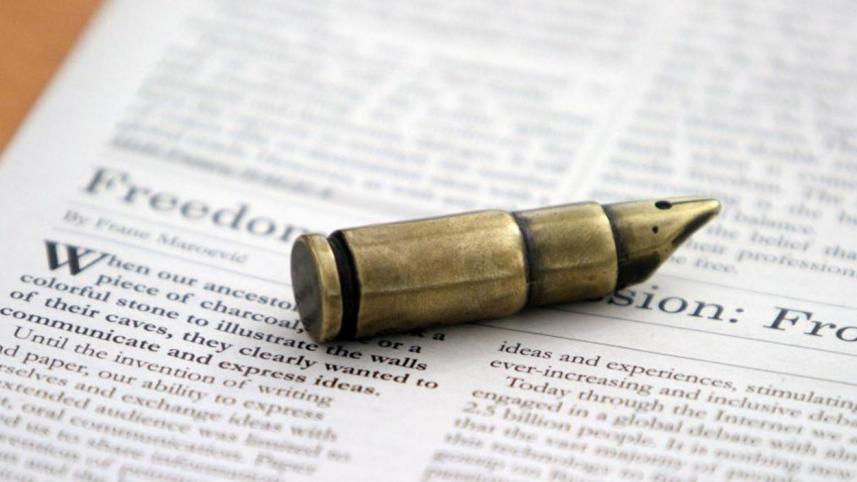Where’s the justice for murdered journalists?

Yesterday, as we marked the International Day to End Impunity for Crimes against Journalists, the International Press Institute, in a statement, drew attention to the fact that the global conviction rate for violent crimes against journalists is abysmally low—in at least nine out of 10 cases, the killers go unpunished. This is all too true in the case of Bangladesh.
According to a report by this daily, in the last two and a half decades, cases filed over the murders of at least 13 journalists have been characterised by never-ending probes, their investigations failing to navigate the messy judicial system, and traceless culprits, all with the same end result: a lack of justice, and impunity for the killers. Since 1992, at least 23 journalists have been killed in Bangladesh, and verdicts have been delivered in only a few of the cases.
In the ones that are still in limbo, it seems that only the families of the deceased are concerned with justice being served. Some of these journalists were murdered over a decade ago, yet their cases have not even reached the courtrooms yet. The aggrieved family members have spoken to the media about investigators failing to submit probe reports, or failing to conduct investigations at all. These cases have dragged on for so long, stuck in the legal quagmire of our justice system, that in one case, even the prosecuting lawyer had no idea of its status. In some instances, the cases have simply been thrown out of court, or the accused have been acquitted. Even in the few where verdicts have been reached, it has taken more than a decade to do so.
This culture of impunity and lethargic attitude towards dispensing justice is a serious threat to the ability of journalists to do their jobs without fear of serious (even fatal) repercussions. If forces with vested interests are able to silence independent journalism with violence, and face almost no consequences for doing so, what does it say about the state of press freedom in a country? Given that journalists in Bangladesh are already operating in increasingly policed spaces, with the threat of the draconian Digital Security Act (DSA) hanging over their heads, such a state of affairs only adds to the environment of fear that they are currently working in.
We demand that the journalists who have been murdered in Bangladesh receive justice without any further delay, and we urge the government to create a safe and enabling environment for media workers in the country. If impunity for committing crimes against journalists is allowed to continue, it will only accelerate such attacks and undermine the future of independent and critical journalism. Ultimately, this is not only an attack on press freedom, but on democracy itself.



 For all latest news, follow The Daily Star's Google News channel.
For all latest news, follow The Daily Star's Google News channel.
Comments